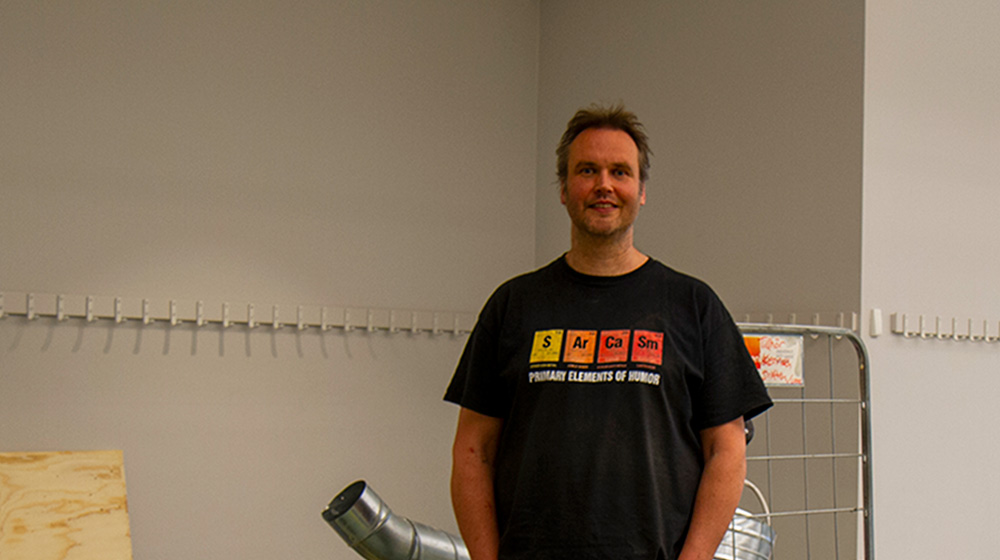New premises taking shape in Flemingsberg

The adaptation of KTH Flemingsberg's premises to accommodate more foundation year students and distance learning via learning centres looks set to meet the deadline. Sebastiaan Meijer, Head of the Department of Medical Technology and Health Systems at KTH Flemingsberg, talks about the remodelling.
"Overall, the situation is very good. We are remodelling the three rooms T41, T61 and T68. T41 was previously a computer room. Now we're converting it into a lecture theatre with room for 100 people and the computers are moving to a project room. T61 was only equipped as a physics lab. Now it has been converted into a chemistry and physics lab for the foundation year. T68 is my old main office that has become a lecture theatre. Finally, we are building a very good studio with state-of-the-art equipment to teach towards learning centres. Everything looks set to be ready for the start of the semester," Meijer says.
When KTH closes its operations in Södertälje, all basic year education will be conducted at CBH, which means an increase in the number of foundation year students in Flemingsberg this autumn. At the same time, the new initiative with foundation year training via distance learning in collaboration with municipal learning centres in Södertälje, Nynäshamn and Norrtälje also requires adaptations of premises and technical equipment in the new learning studio.
“The workplace needs to be of good quality, with plenty of screens so you can see the students properly. It should have a good camera, light and sound and also be easy to set up. You shouldn't have to be an IT technician to start a teaching session," Meijer says.
What kind of reactions have you received from the teachers?
“"Above all, they have given us the thumbs up for what we are trying to achieve, although some adjustments are always required. For example, the schedule has blocked rooms and times for the remodelling. We have handled this well in dialogue, especially when it comes to exams. Not having access to a room where digital exams are held made it a bit tight.”
How have you solved that?
"From the autumn semester, we will rent exam rooms by the hour at Karolinska Institutet, and Södertörn University in connection with test writing and exams,” Meijer says.
What do you think about it?
"It's fantastic to expand campus collaboration in Flemingsberg. When KI and Södertörn University have spaces that they don't fully utilise, it's better that we rent them instead of having premises that cost all year round. Efficient use is super important. Then it comes with planning. They have priority for their halls, so we have to solve that so it becomes manageable.”
One thing that remains to be done this autumn is to create more quiet study spaces in collaboration with KTH's property department. As the work of preparing the premises draws to a close, Meijer notes that one challenge has been to coordinate the large number of people and functions involved, all of which have also been dependent on each other.
"From the autumn onwards, we will simply start teaching in the extended variants such as learning centres. We will have to monitor how things are going and be quick on the ball. What will be important after the summer is to keep our ear very close to the ground and pick up on things that are not working as intended.”
Text: Sabina Fabrizi ( sabina@kth.se )
